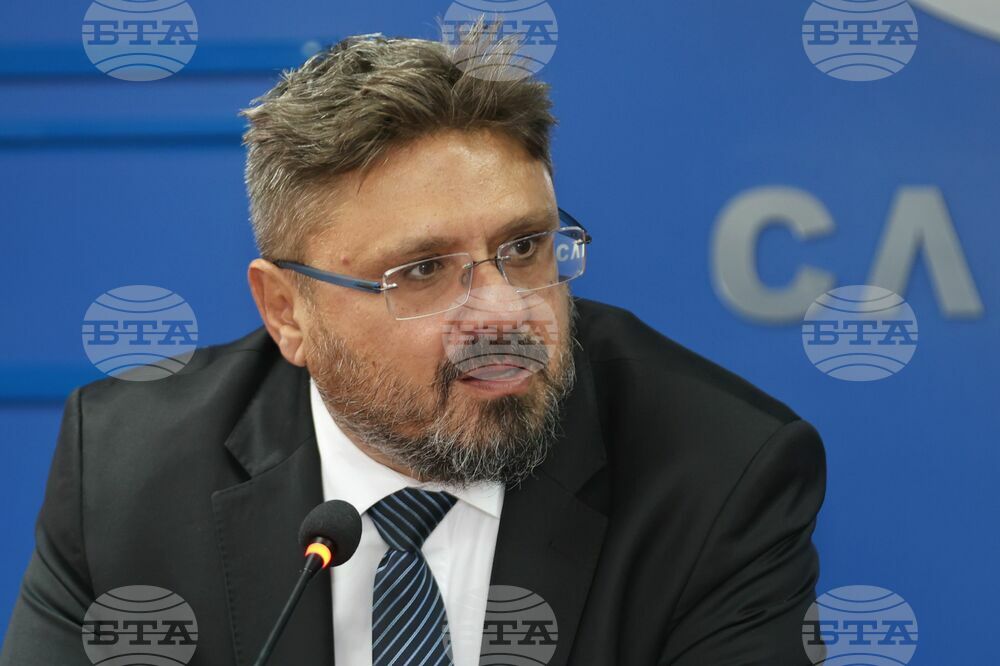site.btaSliven Is Example of Constructive Power of Awareness, Knowledge of Development Opportunities, Says BTA Director General


Sliven is an example of the constructive power of awareness, of knowledge about the achievements of others and about one's own achievements and development opportunities, said BTA Director General Kiril Valchev during a local conference as part of BTA's Europe on Balkans: Cohesion Skills project. The conference took place at the BTA National Press Club here on Friday.
"The concrete proof of this is that compared to 2023 and 2024, we see 50% more information specifically from Sliven Municipality on a variety of topics. My observation is that Sliven is in the top three municipalities that continuously inform the public on all kinds of issues through BTA on a daily basis," Valchev emphasized. He noted that that since 2016, the Sliven Municipality has been nominated three times for a Golden Key, which is a study on access to public information.
Valchev stressed that 12 years ago, in 2013, the BTA National Press Club was opened in the city. "The history of the city is an example of how knowledge leads to development. Without being informed about how factories are built in Europe, there is no way to create the first textile factory on the Balkan Peninsula, like Dobri Zhelyazkov did in 1834, and only eight years later to open factories such as a tobacco and alcohol factory," Valchev pointed out. "There is no way, without knowing the direction in which European culture is moving, to become the first Bulgarian poet Dobri Chintulov," he stressed. Valchev also recalled the practices of newspapers in Europe that led to the creation of the first Sliven newspaper.
The General Director emphasized that the main point of these conferences that BTA is holding is to show that the investments made from European funds should be aimed at young people staying in Bulgaria. He noted that BTA's Europe on Balkans: Cohesion Skills with the support of the European Commission aims to talk about the exchange of knowledge between people in Bulgaria and the Balkans and people from the rest of the European Union, so that people can get to know each other's contribution to the common life in the EU. "We usually hear that Bulgaria receives money from the EU and what remains in our minds is that we Bulgarians are the ones who only benefit from our participation in the EU, but the truth is that the EU also benefits from Bulgarians, just as it benefits from other European nations", Valchev said, adding that the point of these conferences is to see this contemporary contribution.
BTA's Europe on Balkans: Cohesion Skills project aims to raise public awareness and foster open dialogue about cohesion policy, local achievements, and the implementation of the EU's policy priorities. The project kicked off with a conference in Veliki Preslav in November 2024. The schedule of conferences until the end of September 2025 includes events in the following cities: Blagoevgrad, Burgas, Varna, Veliko Tarnovo, Vidin, Vratsa, Gabrovo, Dobrich, Kazanlak, Kardzhali, Kyustendil, Lovech, Montana, Pazardzhik, Pernik, Pleven, Razgrad, Ruse, Samokov, Svishtov, Sliven, Smolyan, Sofia, Stara Zagora, Troyan, Targovishte, Haskovo, Shumen, and Yambol. Cross-border conferences will be held in Belgrade, Bosilegrad, Bucharest, Edirne, Skopje, and Thessaloniki. The project builds on the Europe in the Balkans: A Common Future and Europe in Bulgaria: A Common Future projects, implemented by BTA in 2023 and 2024, respectively.
/MR/
Additional
news.modal.image.header
news.modal.image.text
news.modal.download.header
news.modal.download.text
news.modal.header
news.modal.text


















